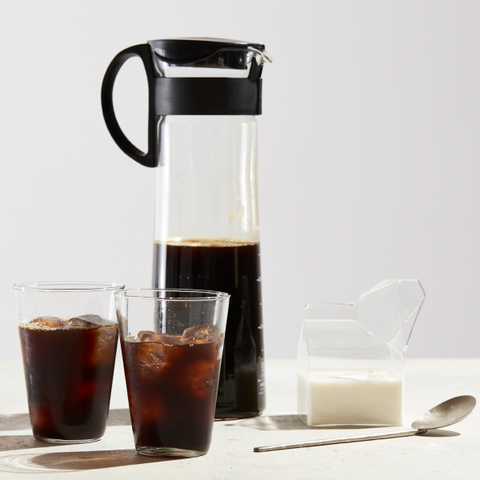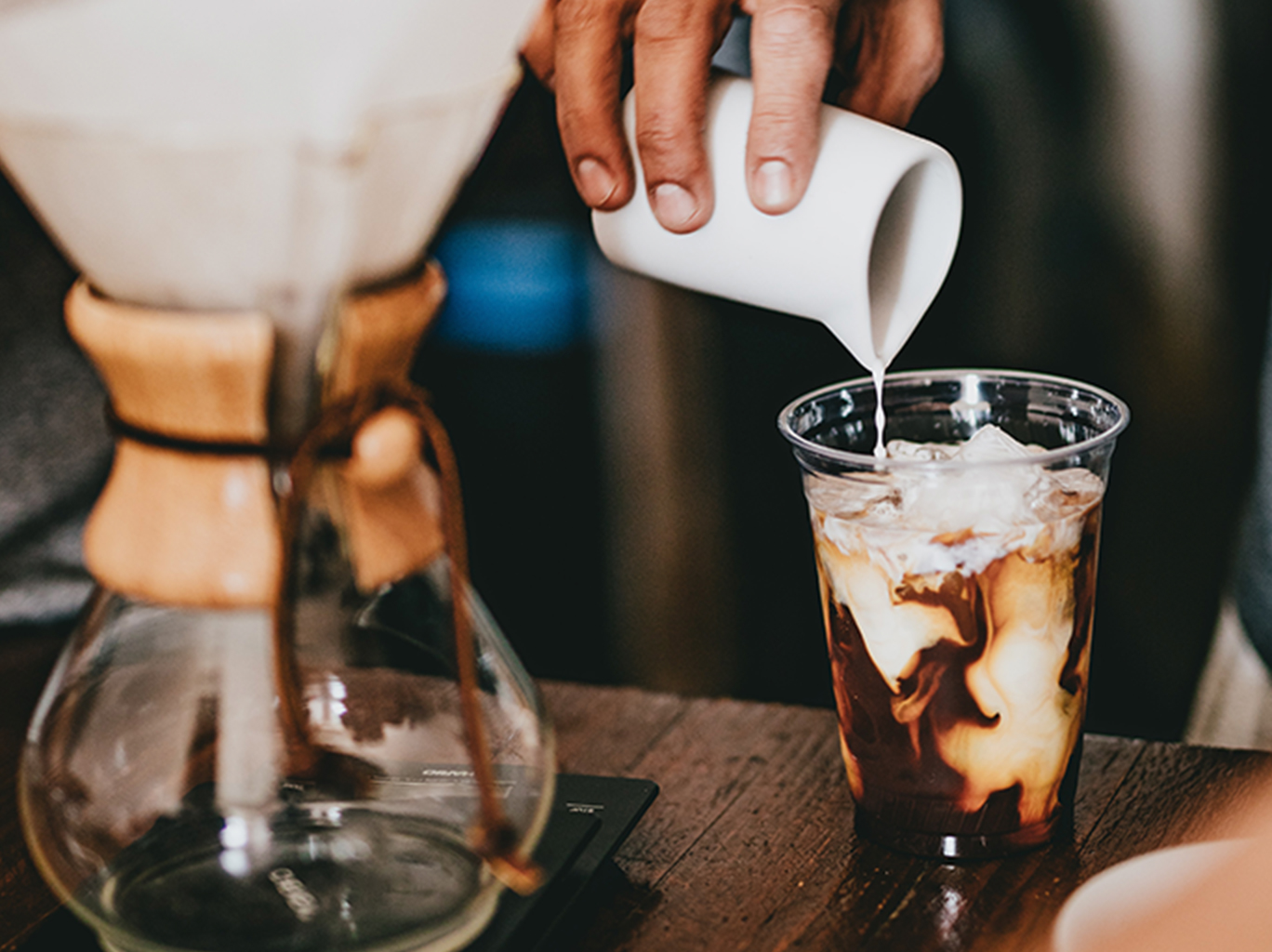You may not know this yet, but making cold brew at home is EASY! And we'll let you in on a little secret too: it tastes even better than what you can get at the café. How? It all starts with concentrate.
What is cold brew concentrate?

Cold brew coffee is coarsely ground coffee that’s been brewed with cold water for 12 to 18 hours. The cold water allows for a slow, gentle extraction process that yields a rich and low-acid brew. Cold brew concentrate — as opposed to regular coffee concentrate, which is made with hot water — is the undiluted form of cold brewed coffee that is used as a base for iced coffee and beyond.
How to make cold brew concentrate
Making cold brew coffee at home is a great way to prepare your daily cup ahead of time, though it does take a bit of patience. Luckily, if you want to know how to make cold brew concentrate, we’ve made it easy for you.
Using Trade Cold Brew Bags, add 3 ounces (or 85 grams) of coarse ground coffee. If you’re not weighing, use the cold brew bag’s drawstring as a guide. (pro tip: Don’t overfill your bag, as you want the water to be able to mingle with all of the coffee grounds.)
Place your coffee-filled bag in your quart jar, add 16 ounces (or 473 grams) of cold water or room temperature water, and seal it with a lid. It’s super-important to use cold water, as you want to prevent any oxidation or over-extraction, which will yield a bitter, sour, and stale coffee taste.
So, how long does coffee take to brew? Once you place your mason jar in a cool and dark area, you can expect it the brewing process to take between 14 and 18 hours. If your home is on the warmer side use less time, and if you’re in a cooler environment, stick to the higher end of the time range.
At the end of your brew time, remove the cold brew bag and discard or compost. You now have your very own cold brew concentrate!
Cold Brew Coffee Concentrate Recipe:
- 3 oz coarsely ground coffee
- 24 oz cold water
- 1 Trade Cold Brew Bag
How to use cold brew concentrate
There are endless possibilities of what to do with cold brew concentrate. Cold brew coffee concentrate is a versatile, choose your own adventure-type ingredient. So, it’s entirely up to you to choose what you’d like to use to dilute it. You can either keep your coffee taste simple with a few ice cubes, add a little richness with milk, or use the concentrate as a base for a coffee cocktail, or as an ingredient in your favorite coffee-based baking recipe.
While cold brew concentrate is the magic ingredient for a variety of drinks, the concentrate should never be heated up. While it could be tempting to create a cup of hot coffee that’s every bit as smooth as your favorite cup of cold brew, reheating coffee drastically changes the chemical make-up. Coffee is full of compounds that, when reheated, will result in a cup that is astringent and bitter.

How much cold brew concentrate to use
After using our cold brew concentrate recipe, you’ll want to dilute it before consuming. When choosing a starting point of how much water to add to cold brew concentrate, start with a one-to-two ratio of concentrate to water and dilute to taste. This same principle can be applied when using milk in place of water.
If you’re looking to make your coffee with milk, here’s a great example of how to make a cold brew concentrate latte.
Ingredients:
- Cold Brew Concentrate Latte
- 2 oz cold brew concentrate
- 4 oz milk of choice
- 4 oz ice cubes
Cold brew concentrate pro tips
-
During the coffee extraction process, solubles are dissolved, giving the final product a little more flavor. Fruit acids, sugars, and bittering components are extracted at different rates, and with cold brew’s slower, gentler rate of extraction, it can be one that is easy to lose control of.
-
While it may be tempting to extend this coffee processing method to achieve a stronger cold brew, anything beyond 14 to 18 hours will lack sweetness and have more unpleasant bitter flavors. Instead, try adding less water or more coffee to adjust the strength of your final cold brew concentrate recipe.
-
Cold brewed coffee is shelf stable for up to a week after brewing, but does start to lose some of its aromatics before expiration. When learning how to store coffee as it pertains to your cold brew recipe — and slow the process of oxidation — tightly seal the final product in a clean container in a refrigerated environment.







